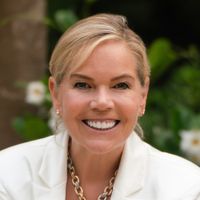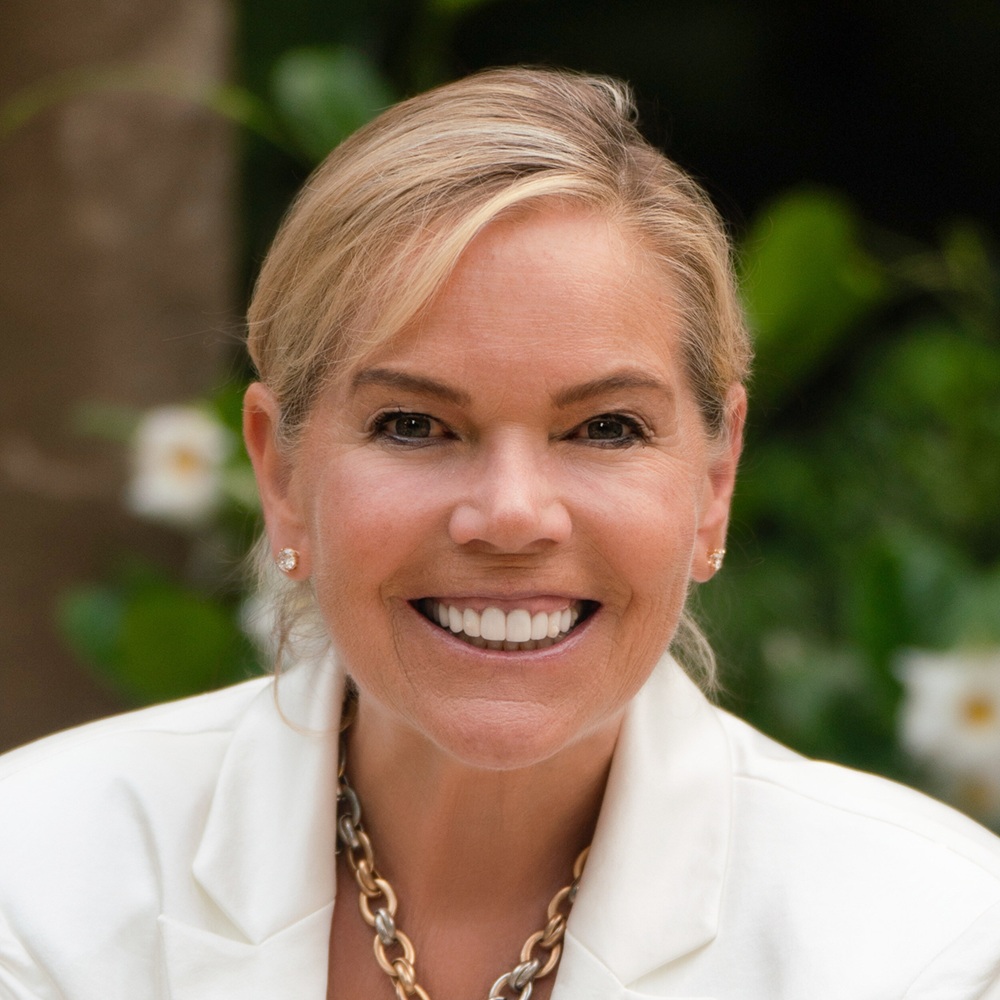Who Says I Can't Retire?
Not many people have $1 million or more saved for their retirement. If you are one of those falling short, take heart: There are some adjustments you can make to help make it work.


Profit and prosper with the best of Kiplinger's advice on investing, taxes, retirement, personal finance and much more. Delivered daily. Enter your email in the box and click Sign Me Up.
You are now subscribed
Your newsletter sign-up was successful
Want to add more newsletters?

Delivered daily
Kiplinger Today
Profit and prosper with the best of Kiplinger's advice on investing, taxes, retirement, personal finance and much more delivered daily. Smart money moves start here.

Sent five days a week
Kiplinger A Step Ahead
Get practical help to make better financial decisions in your everyday life, from spending to savings on top deals.

Delivered daily
Kiplinger Closing Bell
Get today's biggest financial and investing headlines delivered to your inbox every day the U.S. stock market is open.

Sent twice a week
Kiplinger Adviser Intel
Financial pros across the country share best practices and fresh tactics to preserve and grow your wealth.

Delivered weekly
Kiplinger Tax Tips
Trim your federal and state tax bills with practical tax-planning and tax-cutting strategies.

Sent twice a week
Kiplinger Retirement Tips
Your twice-a-week guide to planning and enjoying a financially secure and richly rewarding retirement

Sent bimonthly.
Kiplinger Adviser Angle
Insights for advisers, wealth managers and other financial professionals.

Sent twice a week
Kiplinger Investing Weekly
Your twice-a-week roundup of promising stocks, funds, companies and industries you should consider, ones you should avoid, and why.

Sent weekly for six weeks
Kiplinger Invest for Retirement
Your step-by-step six-part series on how to invest for retirement, from devising a successful strategy to exactly which investments to choose.
The retirement industry has done a great job of selling the vision of what a financially successful retirement looks like and how much money you need to save to get there.
Fortunately, you did everything they recommended, right? You diligently contributed 10% to 15% of your pretax income every year to your company’s 401(k) plan and made smart investment decisions. As a result, you amassed that $1.5 million nest egg you’ll need, along with Social Security, to live in relative comfort for the next 30 years or so. Congratulations! You’re free to travel the world. Or buy that sailboat the financial services industry seems to think all retirees want to own.
What? You say you didn’t do all these things? And your nest egg is less than half of that $1.5 million holy grail? You’re not alone.
From just $107.88 $24.99 for Kiplinger Personal Finance
Become a smarter, better informed investor. Subscribe from just $107.88 $24.99, plus get up to 4 Special Issues

Sign up for Kiplinger’s Free Newsletters
Profit and prosper with the best of expert advice on investing, taxes, retirement, personal finance and more - straight to your e-mail.
Profit and prosper with the best of expert advice - straight to your e-mail.
Millions of Americans either didn’t, or couldn’t, do what experts told them to do. In fact, the average American Baby Boomer has saved about $152,000 for retirement, and only 39% have saved more than $250,000, according to the 19th Annual Transamerica Retirement Survey released in April. Does that mean that a comfortable retirement is permanently out of reach?
Of course not. That’s because your retirement dreams are exactly that: Yours. They don’t need to be someone else’s idea of grandiose. You don’t even need a sailboat.
What you do need is to have some realistic expectations about the things you can actually control. And those that you can’t.
It’s a process, and step one is to visualize what a typical week in retirement will be like. Then connect that vision of your new lifestyle to the reality of how you’ll finance it.
The ins and outs of cash flow
At the nuts-and-bolts level, it’s about comparing inflows (the money coming in from Social Security, retirement plans, bank and investment interest) versus outflows (everything you spend money on). This is known as cash-flow analysis.
If you’re not particularly adept at money management, you can hire a qualified fiduciary financial planner to conduct a cash-flow analysis for you. If you’re good with numbers, and you’ve got access to Microsoft Excel, you might want to do some preliminary analysis on your own.
Now, if you compare your projected inflows with your current outflows, you might feel a panic attack coming on. Without your future paycheck, how will you be able to pay for everything?
Keep in mind that just as your monthly income declines so (hopefully) will some of your expenses. For example:
- If your mortgage and/or home equity loan balances are paid off by that time you retire, one of your most significant lifelong debts will be gone. It’s like adding thousands of dollars to your monthly income.
- At age 65, Medicare will become your primary health insurance. If you’re currently paying a fortune in health insurance premiums and deductibles, switching to Medicare when you retire could dramatically lower those costs. But keep in mind that you’ll want to add supplemental insurance to cover health costs that Medicare doesn’t. (See 7 Things Medicare Doesn't Cover.) And certain expensive medical procedures and prescriptions you may have to pay mostly out of pocket.
- Hopefully, you’ll no longer need to provide financial support to your grown children.
- You may have received, or be on verge of receiving, an inheritance from your parents. That may give you extra money you weren’t anticipating.
And, last, but not least, if money is tight, you may find that a part-time job not only delivers extra income, but it can keep you physically and mentally active and be very enjoyable, especially if you’re working for a good company that values your experience and maturity.
Fortunately, if retirement is still a few years away, you’ve got time to do things right now that could dramatically increase your retirement income. And you’ll have time to start planning for the retirement of your choice.
How to increase the inflow
One mistake many pre-retirees make when estimating their retirement income is thinking that the numbers are frozen in stone. In fact, if you still have a ways to go before you retire, you’ve got a variety of levers you can pull right now to increase your future inflows.
Delaying Social Security pays off in the long run
Resisting taking Social Security benefits as long as possible will pay off handsomely over time, especially if you can wait until you’re 70. For example, if you planned on retiring at age 62 and your monthly Social Security payment would be $1,300, it would skyrocket to $2,182 (in today’s dollars) if you waited until you were 70. Don’t believe it? Calculate your own benefits and see for yourself. One thing to remember: Even if you’re delaying taking Social Security benefits, you definitely should sign up for Medicare during the window that stretches from three months before the month you turn 65 until three months after your birthday month. If you don’t, you’ll pay higher premiums for your Medicare medical insurance (Part B) and Medicare prescription drug insurance.
Turbo-charge your retirement plan contributions
If you’re still working and you participate in your company’s 401(k) plan, try to maximize your pretax contributions, even if this means giving up some of the luxuries you’re accustomed to. You’ll be putting more money away for retirement. You’ll lower your taxable income. And you’ll be able take greater advantage of company matches offered by your employer.
Keep your hands off your assets until you have to use them
When you’ve got a mountain of bills to pay, or you’ve got your eye on a new sports car, tapping into your 401(k) or traditional IRA piggy banks seems pretty tempting. But if you can resist the urge and wait until you have to start taking required minimum distributions (RMDs), you’ll be better off in the long run. You’ll give your money more time to grow on a tax-deferred basis and you may avoid a higher tax bill, since distributions from these retirement accounts are taxed as ordinary income.
Tweaking the outflows
OK, now that you’ve got a checklist of things you can do to increase your retirement inflows, it’s time to think about what you can do to manage your projected outflows in a way that will allow your vision of retirement to be a reality.
Now, there are life events that you won’t be able to control, like the onset of dementia or a catastrophic illness. As you grow older, you can expect that health care costs will increase. So, make sure you give these costs some serious thought, but don’t let them overwhelm you. They’re just one of many expenses you’ll want to plan for.
It’s about ‘yoursizing,’ not downsizing
It’s almost become a retirement cliché. Once you leave your job, you’ll immediately sell your home and use the profits to move to a condo in a cheaper part of the country where you’ll use the profits from the sale to fund 30 years of frugal living.
But you don’t have to give in to this downsizing myth. Why should you move if you really love your home and your community? Do you really want to start over in a new place where you’re far away from friends and family? Financial reasons alone shouldn’t drive such a momentous decision.
The same reasoning applies to your lifestyle in retirement. You don’t have to live up to — or step down to — anyone else’s standards. The only ones that matter are your own.
Living well on less
Yes, money may be tight, but you’ll find ways to economize. You’ll entertain less extravagantly, and you won’t eat out as often. You’ll look more energetically for discounts on flights and hotels when you travel. You’ll hold on to your car for a longer period of time. You’ll use your AARP card to take advantage of senior citizen discounts. And, if you’re healthy enough and need to work part-time to earn some extra income, so be it.
You’ll still have a high quality of life and be able to do most of the things you enjoy. You’ll just be a little more circumspect in how you fund these activities. That’s not being miserly. That’s being fiscally responsible.
It’s never too late to plan
The best way to avoid making retirement-related decisions you’ll regret later is to think about what you want your retirement to be, from both a financial and psychological perspective.
Make a commitment to sit down with your spouse to have a deep, candid discussion where you can both get your retirement dreams and fears out in the open. You may discover that you’re not on the same wavelength in many areas, and compromises on both sides may be required.
And if you need help figuring out the financial aspects of retirement, consider hiring a qualified, fee-only financial adviser to help you. Why fee-only? Because these professionals are paid directly by you. They don’t receive commissions for selling investment or insurance products, so you can rest assured that they’ll provide a plan that will objectively and realistically estimate what your financial picture look like during retirement — and what you can potentially do both now and later to make the rest of your life as successful as you envision.
Profit and prosper with the best of Kiplinger's advice on investing, taxes, retirement, personal finance and much more. Delivered daily. Enter your email in the box and click Sign Me Up.

With more than 25 years in investor advocacy, Pam Krueger is the founder and CEO of Wealthramp, an SEC-registered adviser matching platform that connects consumers with rigorously vetted and qualified fee-only financial advisers. She is also the creator and co-host of the award-winning MoneyTrack investor-education TV series, seen nationally on PBS, and Friends Talk Money podcast.
-
 Dow Adds 1,206 Points to Top 50,000: Stock Market Today
Dow Adds 1,206 Points to Top 50,000: Stock Market TodayThe S&P 500 and Nasdaq also had strong finishes to a volatile week, with beaten-down tech stocks outperforming.
-
 Ask the Tax Editor: Federal Income Tax Deductions
Ask the Tax Editor: Federal Income Tax DeductionsAsk the Editor In this week's Ask the Editor Q&A, Joy Taylor answers questions on federal income tax deductions
-
 States With No-Fault Car Insurance Laws (and How No-Fault Car Insurance Works)
States With No-Fault Car Insurance Laws (and How No-Fault Car Insurance Works)A breakdown of the confusing rules around no-fault car insurance in every state where it exists.
-
 For the 2% Club, the Guardrails Approach and the 4% Rule Do Not Work: Here's What Works Instead
For the 2% Club, the Guardrails Approach and the 4% Rule Do Not Work: Here's What Works InsteadFor retirees with a pension, traditional withdrawal rules could be too restrictive. You need a tailored income plan that is much more flexible and realistic.
-
 Retiring Next Year? Now Is the Time to Start Designing What Your Retirement Will Look Like
Retiring Next Year? Now Is the Time to Start Designing What Your Retirement Will Look LikeThis is when you should be shifting your focus from growing your portfolio to designing an income and tax strategy that aligns your resources with your purpose.
-
 I'm a Financial Planner: This Layered Approach for Your Retirement Money Can Help Lower Your Stress
I'm a Financial Planner: This Layered Approach for Your Retirement Money Can Help Lower Your StressTo be confident about retirement, consider building a safety net by dividing assets into distinct layers and establishing a regular review process. Here's how.
-
 The 4 Estate Planning Documents Every High-Net-Worth Family Needs (Not Just a Will)
The 4 Estate Planning Documents Every High-Net-Worth Family Needs (Not Just a Will)The key to successful estate planning for HNW families isn't just drafting these four documents, but ensuring they're current and immediately accessible.
-
 Love and Legacy: What Couples Rarely Talk About (But Should)
Love and Legacy: What Couples Rarely Talk About (But Should)Couples who talk openly about finances, including estate planning, are more likely to head into retirement joyfully. How can you get the conversation going?
-
 How to Get the Fair Value for Your Shares When You Are in the Minority Vote on a Sale of Substantially All Corporate Assets
How to Get the Fair Value for Your Shares When You Are in the Minority Vote on a Sale of Substantially All Corporate AssetsWhen a sale of substantially all corporate assets is approved by majority vote, shareholders on the losing side of the vote should understand their rights.
-
 How to Add a Pet Trust to Your Estate Plan: Don't Leave Your Best Friend to Chance
How to Add a Pet Trust to Your Estate Plan: Don't Leave Your Best Friend to ChanceAdding a pet trust to your estate plan can ensure your pets are properly looked after when you're no longer able to care for them. This is how to go about it.
-
 Want to Avoid Leaving Chaos in Your Wake? Don't Leave Behind an Outdated Estate Plan
Want to Avoid Leaving Chaos in Your Wake? Don't Leave Behind an Outdated Estate PlanAn outdated or incomplete estate plan could cause confusion for those handling your affairs at a difficult time. This guide highlights what to update and when.